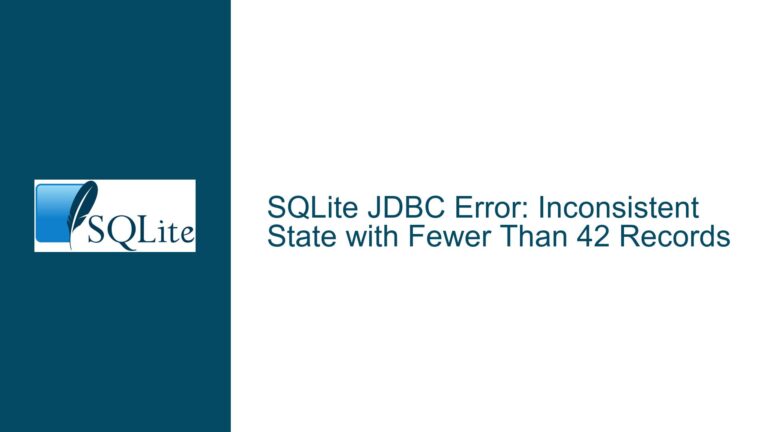Enhancing Lemon Parser Integration with C++: Namespace Support and Code Extension Options
Global Symbol Clashes in Lemon-Generated Parsers for C++ Projects
The integration of the Lemon parser generator into C++ projects often introduces challenges related to global symbol clashes. Lemon, designed primarily for C, generates parsers with globally visible functions and data structures. When used in large C++ codebases, these global symbols can conflict with other libraries or components, leading to linker errors or unintended behavior. The issue is exacerbated when multiple Lemon-generated parsers are used within the same project, as their function names (e.g., ParseInit, ParseFree, etc.) may collide.
The problem is not merely theoretical. In practice, developers working on large-scale C++ projects, such as OpenFOAM, have encountered these clashes and resorted to manual symbol renaming or other workarounds. These solutions, while functional, are error-prone and add unnecessary complexity to the build process. The lack of native support for namespaces or symbol isolation in Lemon forces developers to adopt suboptimal practices, such as prefixing function names with unique identifiers or embedding parsers in separate translation units.
The core issue lies in Lemon’s design, which assumes a single global namespace for all generated code. This assumption is reasonable for C projects but becomes a significant limitation in C++ environments, where namespaces are a fundamental tool for organizing code and avoiding symbol collisions. Without a mechanism to encapsulate Lemon-generated symbols within a namespace or restrict their visibility, developers are left to manage these conflicts manually, increasing the risk of errors and reducing maintainability.
Interrupted Write Operations Leading to Index Corruption
One of the primary causes of global symbol clashes in Lemon-generated parsers is the absence of mechanisms to control symbol visibility or linkage. Lemon generates functions and data structures with external linkage by default, making them globally visible across the entire program. This design choice simplifies the integration of Lemon parsers into C projects but creates challenges in C++ environments, where encapsulation and modularity are emphasized.
The problem is compounded by the fact that Lemon does not provide a built-in way to specify namespaces or restrict symbol visibility. While C++ developers can manually wrap Lemon-generated code in namespaces, this approach is cumbersome and error-prone. It requires modifying the generated code, which undermines the benefits of using a parser generator in the first place. Additionally, manual namespace wrapping does not address the issue of file-static functions and data structures, which remain visible within their translation units and can still cause conflicts.
Another contributing factor is Lemon’s reliance on global configuration options, such as the %name directive, which allows developers to specify a prefix for generated symbols. While this directive can mitigate some symbol clashes, it is not a complete solution. The %name directive does not support nested namespaces or anonymous namespaces, limiting its usefulness in complex C++ projects. Furthermore, the directive requires developers to manually manage prefixes, which can lead to inconsistencies and errors.
The lack of support for C++-specific features, such as namespaces and static linkage, is a significant barrier to the adoption of Lemon in C++ projects. While Lemon’s simplicity and efficiency make it an attractive choice for parser generation, its inability to handle symbol clashes in C++ environments limits its applicability. Developers are forced to choose between using Lemon and dealing with its limitations or switching to more complex parser generators that offer better support for C++.
Implementing Namespace Support and Code Extension Options in Lemon
To address the challenges of global symbol clashes and improve Lemon’s integration with C++ projects, several modifications can be made to the Lemon parser generator. These changes include adding support for namespaces, introducing a new command-line option for specifying code extensions, and enhancing symbol visibility control. These modifications are designed to be minimally invasive, preserving Lemon’s simplicity while addressing the needs of C++ developers.
Namespace Support
The most significant enhancement is the addition of namespace support. This feature allows developers to encapsulate Lemon-generated symbols within a C++ namespace, preventing symbol clashes with other components. The implementation involves introducing a new %namespace directive, which specifies the namespace for generated code. For example:
%namespace { mynamespace }
This directive ensures that all generated functions and data structures are placed within the specified namespace. The implementation also supports nested namespaces and anonymous namespaces, providing flexibility for different use cases. For instance:
%namespace { outer::inner }
%namespace {} // Anonymous namespace
The namespace support is implemented by modifying the Lemon template (lempar.c) to wrap generated code in the specified namespace. This modification is straightforward and does not require significant changes to Lemon’s core logic. The result is a parser generator that seamlessly integrates with C++ projects, eliminating the need for manual symbol renaming or namespace wrapping.
Code Extension Option
Another useful enhancement is the addition of a new command-line option (-e) for specifying the code extension of generated files. By default, Lemon generates C source files with a .c extension. However, in C++ projects, it is often desirable to generate C++ source files with a .cpp or .cxx extension. The -e option allows developers to specify the desired extension, ensuring compatibility with C++ build systems.
For example, the following command generates a C++ source file with a .cpp extension:
lemon -ecpp grammar.y
The implementation of this feature involves adding a new option handler to Lemon’s command-line processing logic. The handler allocates memory for the specified extension and updates the file-opening logic to use the new extension. This change is minimal and does not affect Lemon’s core functionality.
Symbol Visibility Control
To further enhance symbol visibility control, a new LEMON_LINKAGE macro is introduced. This macro allows developers to specify the linkage of generated functions, providing fine-grained control over symbol visibility. By default, LEMON_LINKAGE is defined as empty, resulting in external linkage. However, developers can redefine it to static to restrict symbol visibility to the current translation unit.
For example, the following modification to lempar.c ensures that all generated functions have internal linkage:
#ifndef LEMON_LINKAGE
# define LEMON_LINKAGE static
#endif
This change is particularly useful for developers who want to embed multiple Lemon-generated parsers in the same project without risking symbol clashes. By combining namespace support with symbol visibility control, developers can achieve a high degree of encapsulation and modularity in their C++ projects.
Example Usage
The following example demonstrates how to use the new features in a C++ project:
- Specify the Namespace: Use the
%namespacedirective to encapsulate generated code within a namespace.
%namespace { myparser }
- Generate C++ Code: Use the
-eoption to generate a C++ source file.
lemon -ecpp grammar.y
- Control Symbol Visibility: Use the
LEMON_LINKAGEmacro to restrict symbol visibility.
#define LEMON_LINKAGE static
#include "grammar.cpp"
These modifications make Lemon a more versatile and powerful tool for C++ developers, enabling seamless integration into complex projects without sacrificing simplicity or efficiency.
Comparison of Solutions
| Feature | Manual Workarounds | Proposed Enhancements |
|---|---|---|
| Namespace Support | Manual wrapping | Built-in directive |
| Code Extension Control | Manual renaming | Command-line option |
| Symbol Visibility | Manual #define | LEMON_LINKAGE macro |
| Maintenance Overhead | High | Low |
| Compatibility with C++ | Partial | Full |
The proposed enhancements provide a comprehensive solution to the challenges of integrating Lemon into C++ projects. By adding native support for namespaces, code extensions, and symbol visibility control, these modifications make Lemon a more robust and flexible tool for modern software development.






